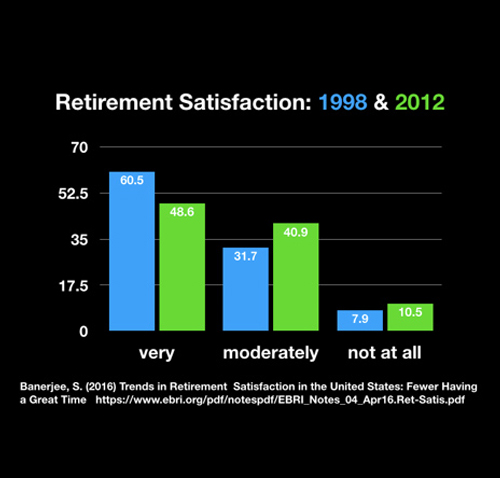Challenges for the Single Person in Retirement

Transition to Retirement Discussion Guide for Couples
August 25, 2021Being single in retirement presents a unique set of benefits and challenges. The primary benefit is that the single person is in charge of all aspects of their life. The primary challenge is that the single person, alone, is in charge of all aspect of their life.
For married people, a spouse provides for automatic social connection – a dinner partner, someone to discuss significant decisions, and a person to care for and be cared for by are all wrapped up in one relationship. Without a spouse, a single person has to work harder to develop and maintain social connections, but it is possible to do so.
How much social contact do you need to be at your best?
Of course, the answer to this question is unique to each individual. Some of us do fine with minimal social contact and only connecting with others a few times a week. Others require daily social connection to be at their best.
Consider not only the amount but what types of social interaction are needed. Some research points to the value of multigenerational relationships. I think of this on three levels: Peer friendships – having people near your age anchors you in shared experiences and a shared place in the life cycle. It is essential to cultivate and maintain peer friendships. Mentor relationships: It is often meaningful to find younger people whom you can mentor in a task, or about life in general. The mentoring does not have to be the primary component in the relationship. If you have adult children – this often serves the role of a mentorship relationship. If you do not have children, where can you find people to connect with that may benefit from your life experiences?
Finally, there is value to having relationships with young children. If you have grandchildren, how do you prioritize your relationship with them? If they are far away – can you have telephone or facetime contact regularly? Can you travel to see them more often? If you do not have grandchildren or do not have frequent access to your grandchildren, how else can you connect with children? For example, are there opportunities at a church or synagogue to be part of childcare, or teach a class? Perhaps there is a local elementary school where you can tutor a child. These might be opportunities for you to connect with much younger people. Regular interaction with children requires us to think and respond in different ways – and this often leads to more fulfillment as we age.
How much social contact might you need in the future to be at your best?
Though it may be difficult to forecast future social needs, we can be aware of how our needs are changing. For some as they age – the social world shrinks into family and a few close friends. Others continue to expand their social networks as they join new activities and organizations. To this point in your life, how has your need for social contact changed? Have you experienced a steady state of desire for connection and alone time – or has your social desire changed over time? If it has changed, has your need for others increased or decreased?
Where will you live?
Beyond social connection, a second consideration for the single person is living arrangements. There are several non-traditional options. Co-housing is an idea that has been growing in the US and around the world. Co-housing is an intentional community in which each resident has a small private residence, but access to a larger shared space. There are daily opportunities to cook and eat together as well as many other kinds of social interaction available. To find out more about co-housing in Houston visit: https://www.cohousinghouston.com
Transition to more assistance, as needed. At this point, it may be appropriate for you to live on your own in a house, condo or apartment. As you age, however, you may need more assistance. How much advance notice will you need to determine when to seek more help? Have you begun exploring options?
Other challenges?
There may be other challenges for you as a single person such as – Should I travel alone, or find others to accompany me? Who will make decisions for me if I become incapacitated? What if loneliness overwhelms me?
Proper planning is your primary tool for a successful retirement. Seeking consultation to explore your options may also be a wise investment.




